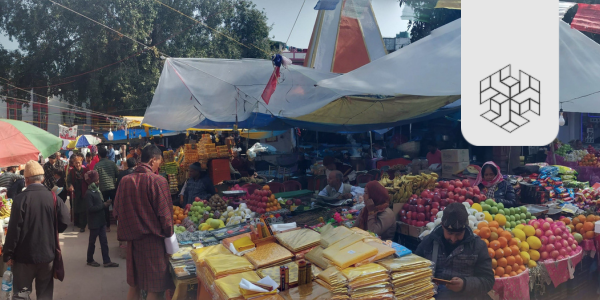Author: Manasi Prabhakaran
Context
Due to adverse working conditions, hundreds of Accredited Social Health Activists (ASHA) in Delhi and Haryana have been on an indefinite protest since August 28 2023. This series of protests continues the larger conversation around the challenges and barriers ASHAs face and has gathered steam in other regions of Northern India, such as Jammu. The protests are aimed at demanding a fixed payment system in accordance with the state’s minimum wage and social security benefits, such as medical leave, insurance, gratuity, pension, provident fund and maternity and health benefits. Additionally, through the protests, a rallying call is being led to constitute an official committee with ASHA representatives to safeguard their rights and redress their grievances and concerns.
On October 20th, 2023, the protests in Haryana culminated, with the government announcing an increase in monthly stipends to INR 6,100 and assurances for granting the other demands. However, hundreds of ASHA workers continue to protest in Bhubaneswar and Assam, seeking fulfilment of their demands of regularised work, increased salaries, and improved working conditions.
The Heroes: Who are ASHA workers?
Known as the grassroots-level crusaders of India’s healthcare system, ASHA workers are non-medical health workers appointed and trained by the National Rural Health Mission. They assist with on-the-ground initiatives for maternal care, immunisation of children against diseases that can be prevented by vaccines, neglected tropical diseases, communicable disease prevention and control, and promoting knowledge about good nutrition, hygiene, and healthy living. The role of ASHAs in caregiving and furthering maternal and reproductive health is widely commended. They promote awareness amongst families, and particularly women, on topics such as pregnancy readiness, the value of a healthy delivery, breastfeeding and complementary feeding, immunisation, contraception and the prevention of common diseases like STIs. ASHAs received the Global Health Leaders Award from the World Health Organization for their efforts in contact tracing, screening and pandemic prevention, as they oversaw a door-to-door operation to combat COVID-19 vaccination hesitancy among rural populations in India. Since ASHAs are regarded as front-line workers due to their multifaceted roles and responsibilities, their performance significantly impacts the success of the National Rural Health Mission. More than a million ASHA workers were employed in the nation as of 2021. The ASHA program has expanded, including health-related tasks, surveys, and programs. Currently, ASHA employees are working over 30 jobs, some of which may take precedence over health-related tasks. The ASHA program was first designed to address issues related to maternal and reproductive health. Still, it has since grown to include a wide range of health programs, including those for the prevention, detection, treatment, and follow-up of diseases like malaria, tuberculosis, diarrhoea, malnutrition, raising awareness of common noncommunicable diseases (NCDs), FP, and, most recently, the detection and follow-up of COVID-19 cases during the pandemic. ASHAs additionally invest time in administrative tasks and surveys, attending meetings at PHCs, Anganwadi centres, and Gram Panchayat offices, and gathering supplies like medications and other consumables.
The program has shown to be successful in reaching the vulnerable and is cost-effective in addressing the rising scarcity of health workers. ASHA’s role in enhancing community-based health programs, including those related to maternity and child health, has been extensively documented and acknowledged in the literature. Multiple evaluations of the ASHA initiative have demonstrated their positive influence on communities’ health and well-being and their ability to raise awareness and modify behaviour. Simultaneously, a vast worldwide corpus of literature indicates and validates the efficacy of community healthcare workers in providing primary healthcare services in numerous settings.
Overworked, Underpaid, and Undervalued: Barriers and Challenges Faced
However, their work is plagued by challenges and barriers at the operational and institutional levels. The past several years have seen increased responsibilities and the expansion of many community-based health programs, which has left ASHAs overworked and stressed out. Due to the challenges they face, many feel underpaid and overworked. ASHAs’ task performance, in the current context of changing epidemiological spectrum and digital health applications to health programs, has been negatively impacted due to low education levels, inadequate digital skills, limited availability and accessibility to necessary resources, work overload, and community reactions.
The effectiveness of ASHA workers is impacted in several ways by the performance-based compensation system, which is erratic and inadequate, denying them financial security. Research from district or state-level studies has suggested that inadequate financial incentives demotivate ASHAs from performing their work responsibilities. Social stigma, difficult working conditions, and inadequate infrastructure and resources hamper their ability to provide quality healthcare services to the communities they serve. Additionally, India’s vast and diverse geographical terrain poses logistical challenges, especially in remote and underserved areas. Inadequate supportive supervision and mentorship arrangements impede ASHA operations in several regions; according to national guidelines, ASHA must undergo 23 days of training in its first year and 12 days of training each year following that. The training program aims to transmit the knowledge, abilities, and attitudes an ASHA needs to carry out their duties and obligations efficiently. However, inconsistent training support and the unavailability of upskilling forums have created a training gap. Despite these challenges, ASHA workers remain dedicated to improving healthcare access and outcomes for their communities, highlighting the need for ongoing support and reform in the healthcare system to address these issues.
The Way Forward
To prepare policy interventions, research suggests that first, for the ASHA program to be viable, new ASHAs must be hired and trained, ongoing funding must be allocated to guarantee that current ASHAs have the institutional support and that ongoing education necessary to provide the ever-expanding range of services that are expected of them is ensured. Second, further research is required to determine how the various incentive schemes, support networks, and implementation strategies that various states have chosen to employ have affected the public’s reception and operation of the ASHA program.
The current protests have gained significant attention from the media and the public. The various stakeholders have responded by promising to address some of the demands, such as increasing the pay and benefits of ASHA workers. However, the ASHA workers have said they will continue to protest until their demands are met. These protests shed light on the critical issues ASHA workers face, who often find themselves overburdened with work, inadequately compensated, and lacking the job security they deserve. As the backbone of India’s community health system, ASHA workers are at the forefront of critical healthcare initiatives, such as maternal and child health programs, vaccination campaigns, and disease prevention efforts. Their demands for fair wages and better working conditions reflect their dedication to improving the nation’s healthcare outcomes, emphasising the need for greater support and recognition of their vital role in India’s public health infrastructure.
The protests are a reminder of the vital role that ASHAs play in the Indian healthcare system and the need to improve their working conditions. Hopefully, the government will take concrete steps to address the demands of the ASHA workers and ensure that they can continue providing essential health services to millions of people in rural and underserved areas.
____________________________________________________________________________________________________________________
Author Bio: Manasi Bhagyashri Prabhakaran (she/her) is currently pursuing the Young India Fellowship at Ashoka University, building a career in public policy research & communications. She graduated with a degree in Applied Psychology from Gargi College, University of Delhi, and is a passionate crusader for mental health and gender rights. Her artistic liberation comes from her engagement with poetry, dance, and film.
Project Overview: Manasi is a fellow of Ashoka University’s Young India Fellowship. As a requirement of the fellowship, fellows closely collaborate with an organisation for eight months through the Experiential Learning Module. During this time, they gain hands-on experience and actively contribute to the organisation’s project requirements. At SPRF, Manasi and other fellows are engaged in three research projects focusing on Climate Resilience, Governance, and Grassroots Women’s Leadership.



